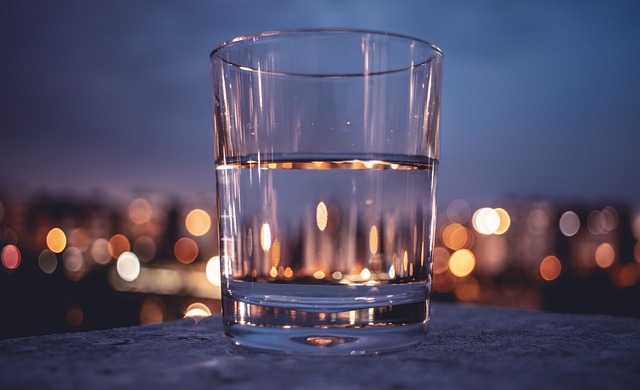When is The Best Time to Drink Water?
When is The Best Time to Drink Water?

When is The Best Time to Drink Water?
Drinking water is essential for our health and well-being, but have you ever wondered when is the best time to drink water for maximum benefits? In this comprehensive guide, we will explore when to hydrate yourself throughout the day, considering various factors like body functions, lifestyle, and health goals. Staying properly hydrated is crucial, and by understanding when and how to consume water effectively, you can enhance your overall health and vitality.
What is The Importance of Hydration?
Water is the foundation of life. Our bodies are composed of approximately 60% water, and every cell, tissue, and organ relies on it to function properly. Adequate hydration is essential for digestion, circulation, temperature regulation, and even cognitive function.
Proper hydration offers numerous benefits, including improved skin health, enhanced metabolism, and better kidney function. It also helps in the transportation of nutrients and oxygen throughout the body. To reap these benefits, it's crucial to consume water strategically throughout the day.
The Right Way to Drink Water
The Morning Ritual: Start Your Day Right
Your morning routine sets the tone for the day, and hydrating first thing in the morning is a great way to kickstart your body. After a night's rest, your body is dehydrated, and replenishing fluids is essential.
One popular morning hydration ritual is to start your day with a glass or two of room-temperature water. Some prefer to add a squeeze of lemon for an added detoxification boost. This practice not only rehydrates your body but also aids in flushing out toxins and jumpstarts your metabolism.
Hydration Throughout the Day
As the day progresses, hydration is needed to sustain energy levels and overall well-being. Consider the following tips:
- Balancing Water Intake with Meals: While drinking water before and during meals can aid digestion, excessive water consumption during meals may dilute stomach acids. It's best to strike a balance, taking sips rather than gulping down large quantities.
- Water and Exercise: If you're physically active, pay attention to your hydration needs. Pre-hydrating before exercise and rehydrating during and after workouts is vital to prevent dehydration and maintain peak performance.
- Drinking Water to Boost Productivity: Staying hydrated can improve cognitive function and concentration. Sip water throughout the day to stay mentally sharp, especially if you have a desk job or engage in mentally demanding tasks.
Water Before Meals: A Weight Loss Strategy
Are you looking to shed a few pounds? Proper hydration can support your weight loss goals. Drinking a glass of water before meals can help control your appetite, leading to reduced calorie intake. Additionally, sometimes thirst is mistaken for hunger, so staying hydrated can prevent unnecessary snacking.
Timing your water intake for weight loss can be a game-changer. Consuming water about 30 minutes before a meal can help you feel fuller and more satisfied, reducing the temptation to overeat.
The Afternoon Slump: Combat Fatigue with Water
Many people experience a mid-afternoon energy dip, which can often be attributed to dehydration. Fatigue is a common symptom of insufficient water intake. Combat this slump by drinking a glass of water and taking short breaks to stretch and move around.
Avoid dehydration-related fatigue by keeping a water bottle at your desk or within easy reach. This visual reminder will encourage you to sip water regularly throughout the day.
Hydration for Athletes and Active Individuals
If you're an athlete or engage in regular physical activity, your hydration needs are even more critical. Proper hydration can significantly impact your performance and recovery. Here's how to optimize your hydration:
- Pre-Workout Hydration: Drink water before your workout to ensure you start in a well-hydrated state. Dehydration can lead to reduced endurance and muscle cramps.
- Staying Hydrated During Exercise: Depending on the intensity and duration of your workout, you may need to sip water or a sports drink to replenish lost fluids and electrolytes.
- Replenishing Electrolytes Post-Workout: After exercise, especially if you've sweated heavily, consider hydrating with an electrolyte-rich beverage or water combined with a balanced meal.
Evening Hydration: Preparing for Restful Sleep
Proper hydration can even impact the quality of your sleep. While it's essential to stay hydrated throughout the day, consider tapering your water intake in the evening to avoid nighttime awakenings to use the bathroom.
However, dehydration can lead to nighttime muscle cramps, so don't neglect your hydration needs entirely. Sip a small glass of water if you're feeling thirsty, but avoid excessive intake close to bedtime.
Special Considerations for Health Conditions
Certain health conditions require special attention to hydration:
- Hydration for Pregnant Women: Pregnant women have increased fluid needs. Staying hydrated is essential for the health of both the mother and the developing baby.
- Water Intake for Elderly Individuals: As we age, our sense of thirst may diminish, making dehydration easier. Older adults should be proactive about drinking water regularly.
- Managing Diabetes with Proper Hydration: For individuals with diabetes, managing blood sugar levels is crucial. Proper hydration can help maintain stable blood sugar levels.
Conclusion: The Art of Hydration Timing
The timing of your water intake can significantly impact your health and well-being. By strategically incorporating hydration into your daily routine, you can experience a range of benefits, from improved digestion and energy levels to better weight management and enhanced athletic performance.
Remember that the key to proper hydration is balance. Avoid excessive water consumption in a short period (which can lead to water intoxication) and adapt your hydration strategy to your individual needs, taking into account your activity level, health condition, and lifestyle.
